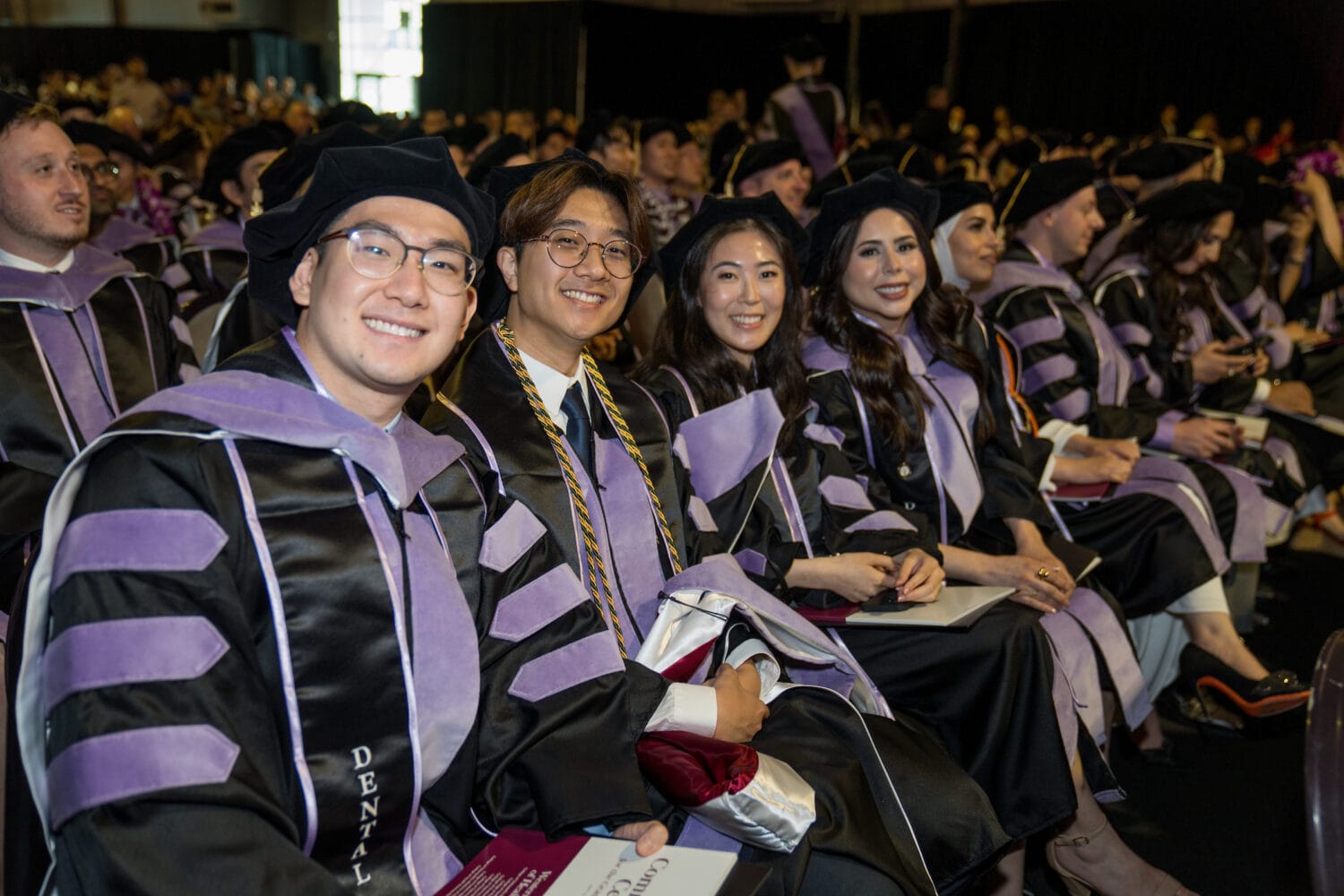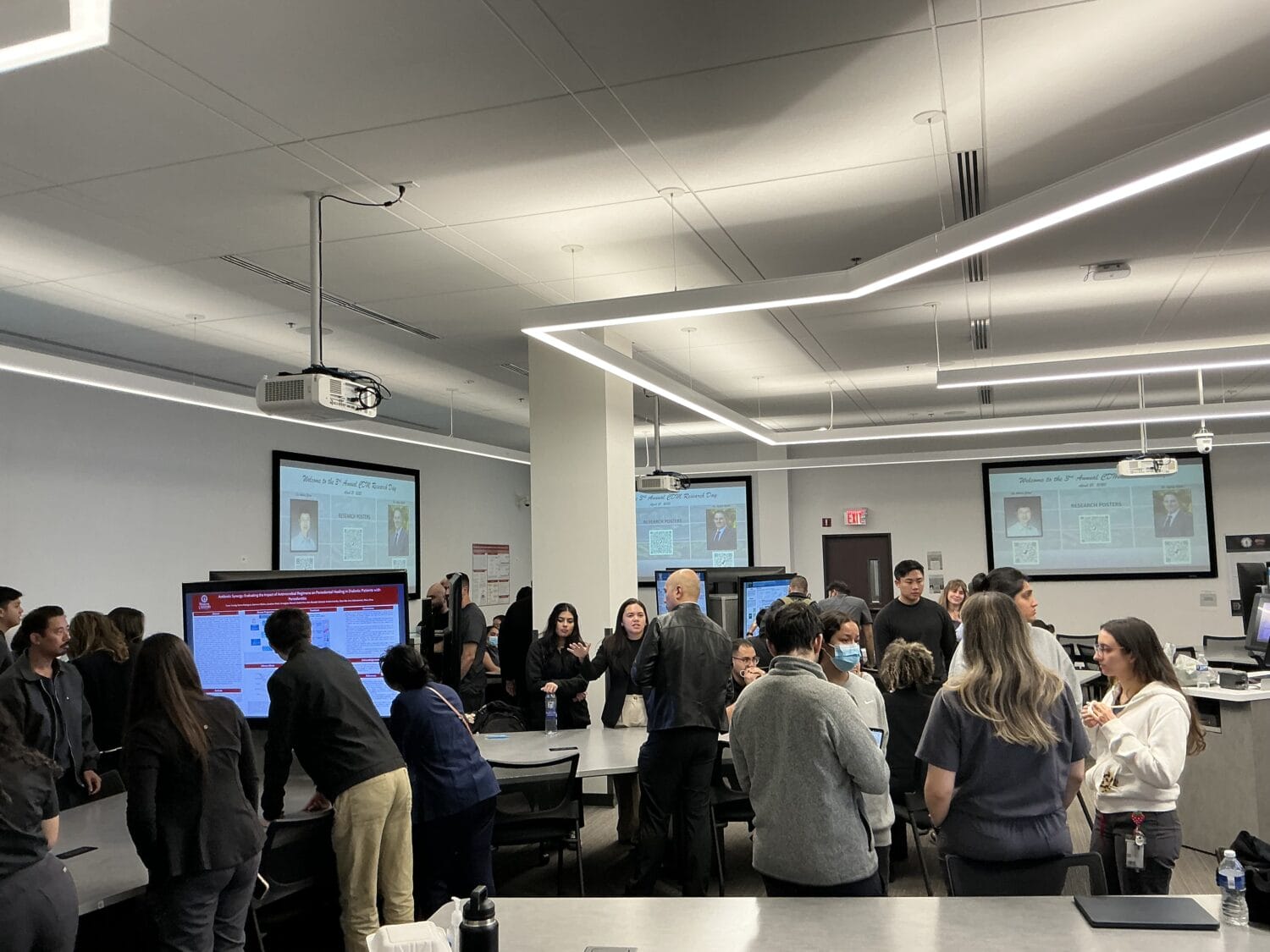WesternU College of Dental Medicine joins nationwide effort to reduce childhood caries
The College of Dental Medicine is now part of a nationwide effort to reduce early childhood caries (ECC) and improve oral disease management in the pediatric population. WesternU will be working with other universities, hospital-based dental programs, Federally Qualified Health Centers, and community based programs in more than 20 states to combat the rise in ECC.
The College was selected to join Phase III of the Early Childhood Caries Collaborative, managed by the DentaQuest Institute and the National Initiative for Children’s Healthcare Quality (NICHQ).
Early childhood caries, or aggressive tooth decay in very young children, is a chronic, infectious dental disease that is almost completely preventable, according to the DentaQuest Institute.
The aim of ECC Phase III is: “By February 2015, Phase III teams will successfully adopt and spread the practices and protocols of disease management for early childhood caries, including risk assessment, risk-based recall, fluoride use, self-managed goal setting, and restorative treatments that have been successfully tested in diverse settings to reduce new cavitation, pain, and operating room treatments.”
“For them to recognize our contributions, it puts the College of Dental Medicine right on the map,” said Timothy Martinez, DMD, College of Dental Medicine (CDM) Associate Dean for Community Partnerships and Access to Care. “We’re one of three sites in California. We want to help Pomona. This is an area in dire need of oral health services.”
The CDM Phase III team is: Dr. Marisa Watanabe, Co-team Leader; Dr. Dianne Tungol, Co-team Leader; Dr. Timothy Martinez, Senior Leader; Josih Hostetler, Clinical/Technical Expert; Dr. Yawen Peng, Dentist/Practitioner Champion; and Dr. Gary Pape, Improvement Coach.
CDM’s work with ECC Phase III builds on programs already implemented in Pomona, El Monte, and other communities. CDM’s community model emphasizes getting children into the oral health care delivery system, or dental homes, by age 1. Other goals include sustainability and getting dental students comfortable with treating young patients. The College has received funding from HRSA and First 5 LA, which targets children 0-5 years old.
“Our goal was to find a way to get our foot in the door,” said CDM Assistant Professor Marisa Watanabe, DDS, MS. “We have the data, but we are interested in collaborating our findings on a grander scale. This would allow us to impact the oral health disease management on a national, and hopefully, global aspect of health care.”
The patient’s first point of contact will often be a WIC or Head Start site. They will be referred to an oral health center if they do not have a dentist. CDM students will be teaching patients about proper oral hygiene, and also performing basic restorative measures. Each patient will be given a treatment plan.
When seen at a school-based oral health center, they will receive comprehensive dental health care – exam, diagnosis, cleanings, sealants, child root canals, white smile crowns, and fillings. CDM is implementing electronic health records at the oral health centers in Pomona and El Monte.
CDM recently established oral health centers at The Village@Indian Hill and the Mendoza Center, both Pomona Unified School District sites. Two more Pomona sites are scheduled to open in the next 24 months. CDM is also running school based oral health centers on the Gidley and Durfee campuses in El Monte.
“When a child at risk for early childhood caries returns for their periodic examination, our goal is to see a decrease or zero cavities,” Watanabe said. “Furthermore, we want to emphasize not just the clinical exam, but the overall oral health management of the child.”
Adding the ECC collaboration allows CDM to draw on nationwide resources.
“It gives us a quality methodology about quality and prevention,” Martinez said. “It’s work we have to do anyway. Now we’re being guided on a clear pathway, being looked at for improved oral health outcomes. This will help promote and lead us to more quality, evidence-based programs.”
CDM will look to change children’s and parents’ behavior, providing aggressive preventative services to get children at low risk for caries. The goal is to determine whether this is a good way to keep costs down and keep mouths healthy.
“The concept of a disease management model in dentistry is relatively new to dental providers. WesternU CDM’s participation in the ECC Collaborative Phase III will help to support the evidence behind this model,” Martinez said. “It’s important for our dental students to understand this concept. All of our students will participate in some aspect of this Collaborative. We want to keep children out of operating rooms and prevent early childhood caries. We are able to track these kids over time. We will see if our interventions have an impact on the community.”



